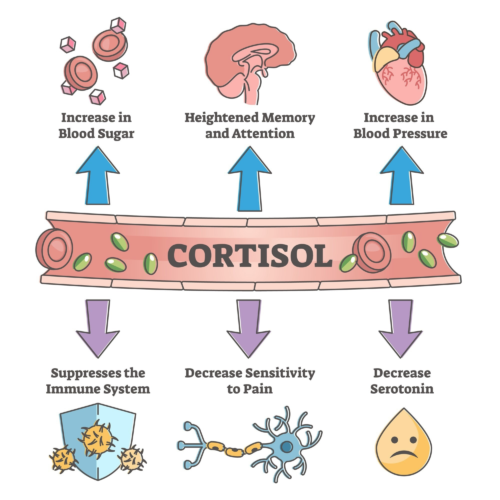by University of Queensland Credit: Cell Reports Medicine (2024). DOI: 10.1016/j.xcrm.2024.101849 Queensland researchers have solved the century-old mystery of why patients who suffer severe spinal cord and brain injuries develop debilitating bone growths around joints such as hips and shoulders. Neurogenic heterotopic ossification (NHO) affects about 20% of patients who suffer spinal cord injuries and can lead to a complete loss of...
Tag: <span>Cortisol</span>
How Does Cortisol Affect The Body?
By Marzia KhanReviewed by Danielle Ellis, B.Sc. Biological functions of cortisolEffects of cortisol on different systemsCortisol imbalance and health issuesManaging cortisol levelsConclusionReferencesFurther reading Cortisol is commonly known as the body’s stress hormone and has a range of effects on various functions within the body. Image Credit: GoodStudio/Shutterstock.com This glucocorticoid is a steroid hormone that is...
How Can You Reduce Cortisol Naturally? Supplements, Foods, and More
Written by Emily Hulse, MS, RD | Reviewed by Katie E. Golden, MD Key takeaways: A healthy cortisol level is important for both your mental and physical health. Increases in cortisol can create both short- and long-term health effects.Certain supplements can reduce cortisol levels — although some may be more effective than others.Nutrient-rich foods and...
How cortisol affects exposure therapy for anxiety disorders
by Ruhr-Universitaet-Bochum Bochum-based psychologists have studied how the application of the stress hormone cortisol affects exposure therapy for anxiety disorders. The researchers knew from earlier studies that extinction learning, which constitutes the foundation of exposuretherapy, can be reinforced by administering cortisol. However, the team headed by Professor Armin Zlomuzica at Zentrum für Psychotherapie (psychotherapy centre) at Ruhr-Universität Bochum (RUB) has demonstrated with a group of...
Wrist Worn Wearable Measures Glucose, Cortisol, and Interleukin-6 from Sweat
Researchers at University of Texas at Dallas may have revolutionized diabetes management thanks to a remarkable new wrist-worn sensor that is able to continuously and accurately monitor glucose, cortisol, and interleukin-6 in perspired sweat for up to a week. These days, blood has to be drawn and levels of cortisol and interleukin-6 can only be measured once in a while...

